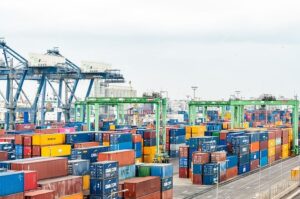
The European Parliament has recommended temporary removal of the Philippines from the European Union’s (EU) Generalised Scheme of Preferences Plus (GSP+) program over alleged continued human rights violations committed in the country.
In a resolution adopted on September 17, the EU Parliament called on the European Commission to immediately initiate the procedure for temporary withdrawal of the GSP+ privileges of the Philippines “given the seriousness of the human rights violations in the country.”
The EU legislative body again expressed “its deepest concern at the rapidly deteriorating human rights situation in the Philippines under President Rodrigo Duterte and calls on the country’s government to implement all the recommendations outlined by the UN [United Nations] High Commissioner for Human Rights to address a range of serious issues, such as the ‘widespread and systematic’ killings related to the authorities’ anti-drug campaign.”
Members “strongly denounce the thousands of extrajudicial killings and other serious human rights violations related to the so-called ‘war on drugs’,” the resolution said.
The resolution cited a June 30, 2020 report by the UN High Commissioner for Human Rights which found that the killings related to the government’s anti-drug campaign were “widespread and systematic.” And while official government data recorded at least 8,663 people had been killed, there are estimates it could be triple that number, the report said.
The resolution said the EU lawmakers “also condemn all threats, harassment, intimidation, rape and violence against those who seek to expose allegations of extrajudicial killings and other human rights violations in the country, including human rights and environmental activists, trade unionists and journalists.”
It also cited the killing of 43 land rights defenders in 2019; the attacks against indigenous human rights defenders and militarization of indigenous territories; and moves to reinstate the death penalty. It also noted the adoption of the new Anti-Terrorism Act, which is said to weaken human rights safeguards to an alarming degree, and the deteriorating level of press freedom in the Philippines, among other alarming developments.
In 2018, the EU Parliament had also repeated its call to Philippine authorities to stop the alleged extrajudicial killings (EJKs) carried out through their war on drugs, saying these actions were against the country’s international obligations under programs such as the EU’s GSP+ and the PH-EU Partnership on Cooperation and Agreement.
READ: PH drug war could lead to temporary withdrawal of EU GSP+
Trade Secretary Ramon Lopez said the country has so far been able to explain objectively its side “on issues that are raised and we don’t see any reason why our GSP+ privilege will be withdrawn.”
Lopez, in a statement, said the Philippines has “always been working closely and fully cooperating with the EU Commission—the main EU institution in charge of implementing the GSP+ scheme.”
He added there is an inter-agency working group in place attending to regular monitoring visits and responding to issues officially raised by the EU Commissioner.
He noted the EU Commission has a mechanism in place and a process to follow to verify issues before sanctions are imposed.
GSP+ is an EU program that allows beneficiary countries’ products duty-free access to the European market.
The Philippines received beneficiary country status under the EU GSP+ in December 2014. Under this, the Philippines may export 6,274 eligible products duty-free to the EU market. Prior to December 2014, the Philippines was covered by the regular EU GSP which provides zero duty to only 2,442 products and reduced tariffs to 3,767 products.
GSP+ is based on the concept of sustainable development, and countries that wish to join the program must commit to effectively implement the 27 core international conventions on human and labor rights, environmental protection, and good governance, in return for better access to the EU market.
Once a country is granted GSP+ status, the EU monitors whether the beneficiary country abides by its commitments; if it does not, the beneficiary may be removed from the special program.
According to the resolution, 25% of total Philippine exports to the EU (almost EUR2 billion) received preferential treatment under the GSP+ in 2019.









